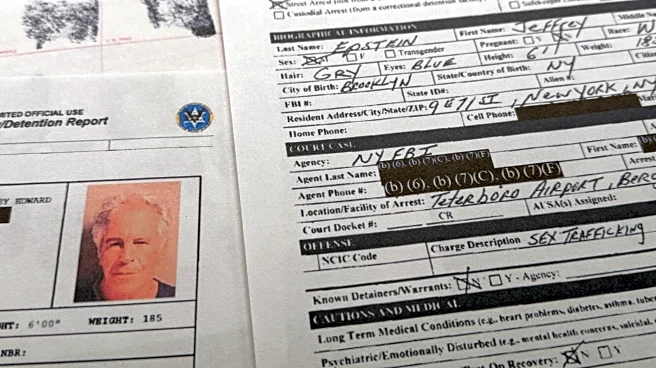Rapid Read • 8 min read
Israeli Prime Minister Benjamin Netanyahu is reportedly planning to fully occupy the Gaza Strip, according to multiple Israeli media outlets. This decision involves expanding military operations across the entire enclave, including areas where Hamas captives are held. The move comes as Netanyahu faces increasing international pressure to allow more humanitarian aid into Gaza and halt the ongoing conflict, which has resulted in significant Palestinian casualties. The Palestinian Ministry of Foreign Affairs has condemned the plans and urged the international community to intervene. Netanyahu's war cabinet is set to convene to discuss the next steps, as the conflict nears its two-year mark.
AD
The decision to fully occupy Gaza has significant implications for regional stability and international relations. It could exacerbate humanitarian issues in Gaza, where malnutrition and casualties are already high. The move may also affect Israel's diplomatic relations, as international pressure mounts for a ceasefire and increased humanitarian aid. Domestically, Netanyahu faces pressure to secure the release of remaining captives held by Hamas, which could influence public opinion and political dynamics within Israel. The situation highlights the complex interplay between military strategy, humanitarian concerns, and international diplomacy.
Netanyahu's war cabinet is expected to discuss the full occupation plan and its implementation. International reactions, particularly from Western countries, could influence the decision-making process. Humanitarian organizations and foreign governments may increase calls for intervention and aid. The ongoing conflict and occupation plans could lead to further diplomatic negotiations or pressure for a ceasefire. The situation remains fluid, with potential shifts in military strategy and international responses.
The occupation plan raises ethical and legal questions regarding the treatment of civilians and captives in conflict zones. It may also impact long-term peace prospects in the region, as the humanitarian crisis deepens. The decision could trigger broader discussions on international law and human rights, particularly concerning the responsibilities of occupying powers. The situation underscores the challenges of balancing military objectives with humanitarian needs and international norms.
AD
More Stories You Might Enjoy












